
Loading....
Close



Co-curricular activities play a crucial role in shaping students into well-rounded individuals who are not only academically competent but also socially skilled, emotionally mature, and capable of facing the challenges of the real world. They provide a platform for practical learning, skill development, and personal growth that goes beyond the boundaries of traditional classroom education.
JBM Global is a renowned school in Noida that offers a plethora of co-curricular options with academics for the students to pursue and explore their diverse interests. By recognizing the significance of co-curricular activities, we empower every student to excel in life.
This article will talk about the value of co-curricular activities for students and how they can help them in holistic growth and becoming well-rounded, dynamic individuals who see life through multiple lenses, have diverse interests, and enjoy various activities.
Co-curricular activities are programs, learning experiences, and activities that are connected to or support what students learn in academics. These activities are technically held outside the classroom.
These activities supplement academics but include strategies that help in learning practically. These help students understand the problems practically, find solutions creatively, promote critical thinking, and develop collaborative skills.
Some co-curricular activities in schools are compulsory while others are voluntary and students can pick the activities they like as per their interest. They could choose to participate in dance competitions or be a part of a sports team, debate team, or others as they like.
Either way, these are the activities that help the students in skill development, emotional development, and overall personality development. Hence, these activities are very important.
Also Read: Everything About Joy of Giving
Schools emphasize the importance of co-curricular activities due to the following benefits they provide:
One of the main reasons why co-curricular activities are important is that they develop self-confidence in students. Regardless of whether students are interested in sports or participating in school plays, being involved in something apart from studies will make them feel recognized, which will further give their confidence a solid boost.
Participating in co-curricular activities requires students to balance their academic responsibilities with their extracurricular pursuits. Whether it’s joining a sports team, participating in a debate club, or engaging in music lessons, students learn to manage their time effectively.
This skill becomes invaluable as they progress in their academic journey and later in their professional careers. By juggling different activities, students learn to prioritize tasks, set deadlines, and allocate time efficiently, which enhances their overall productivity.
Also Read : Top 20 Qualities of a Good Student
Not every student excels academically, and co-curricular activities provide a platform for students to explore alternative areas where they may have hidden talents or interests. A student who might struggle with traditional academics could excel in painting, dancing, playing a musical instrument, or sports.
Co-curricular activities expose students to a wide range of opportunities, allowing them to discover and develop their unique abilities, boosting their self-confidence and self-esteem in the process.
Participation in co-curricular activities encourages interaction with peers who share similar interests. This social aspect fosters teamwork, cooperation, and communication skills. Working together towards a common goal, such as preparing for a play, organising an event, or competing in a team sport, teaches students how to collaborate effectively.
They learn to respect diverse opinions, resolve conflicts, and build meaningful relationships, which are essential life skills for personal and professional success.
Also Read : What is a Mock Test & How Does it Benefit Students?
Being part of a co-curricular activity requires commitment and dedication. Students learn that regular practice, rehearsals, or meetings are necessary to improve their skills or contribute meaningfully to the group.
This sense of commitment instills responsibility and discipline in students, teaching them the value of perseverance and hard work. It also helps them understand the importance of fulfilling commitments in other aspects of life, including academics and personal relationships.
Co-curricular activities often involve tasks that stimulate cognitive functions and creative thinking. For instance, participating in debates sharpens critical thinking and analytical skills. Learning to play a musical instrument enhances memory and concentration.
Engaging in scientific clubs and workshops nurtures problem-solving abilities. Such activities encourage students to think beyond the textbook and apply their knowledge to real-world situations, thereby fostering intellectual growth and cognitive development.
Also Read: How Mobile Phones Impact Students’ Lives?
Co-curricular activities help students learn a lot of skills. The importance of co-curricular activities in school is supreme as they help students learn the following skills.
1. Logical and Analytical Thinking: Analyzing the reasons behind events and situations.
2. Critical thinking: Examining concepts, ideas, problems, and issues in a thoughtful manner.
3. Creative thinking: Finding innovative solutions, visualizing ideas, and generating new concepts.
4. Problem-solving skills: Applying various concepts to solve problems effectively.
5. Leadership skills: Taking initiative, shouldering responsibilities, setting goals, and motivating others towards common objectives.
Also Read : The Significance of Punctuality in The Lives of Students
6. Social skills: Collaborating, working in teams, building positive relationships, and influencing others positively.
7. Emotional skills: Understanding personal strengths and weaknesses, managing emotions, and showing empathy.
8. Communication skills: Expressing ideas effectively, active listening, and proficient public speaking.
9. Technology skills: Utilizing computer software and applications proficiently to achieve tasks.
10. Time management skills: Efficiently organizing and utilizing time for optimal productivity.
11. Sense of responsibility: Understanding and fulfilling one’s duties and obligations.
12. Teamwork skills: Cooperating and contributing effectively within a group environment.
13. Social values: Respecting individual differences, cultural diversity, and others’ values.
14. Ethical values: Maintaining moral principles in public and personal life.
Also Read : The Role of Science Exhibitions in Schools
15. Recreational values: Recognizing the importance of leisure and participating in recreational activities for relaxation and enjoyment.
1. Sports: Participation in sports activities not only promotes physical health but also teaches valuable life skills such as teamwork, discipline, and resilience.
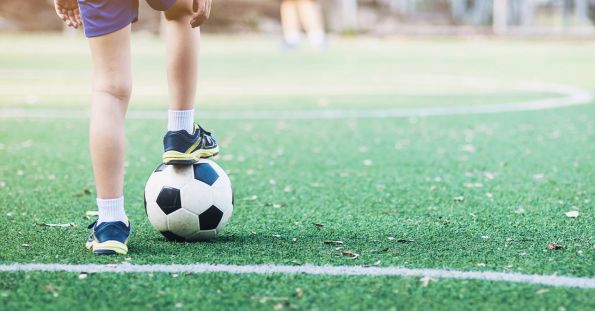
2. Robotics Club: Students can learn a lot by being a part of a robotics club. It gives them the opportunity to discover their interest in STEM while being in a productive environment.
Also Read : 10 Benefits of Reading Newspaper For Students
3. Coding Club: Students who are interested in coding can participate in coding clubs. Children can learn basic principles of coding and become part of projects along with their classmates.
4. Indoor Games: Indoor games like chess, table tennis, and board games enhance strategic thinking, decision-making, and concentration.
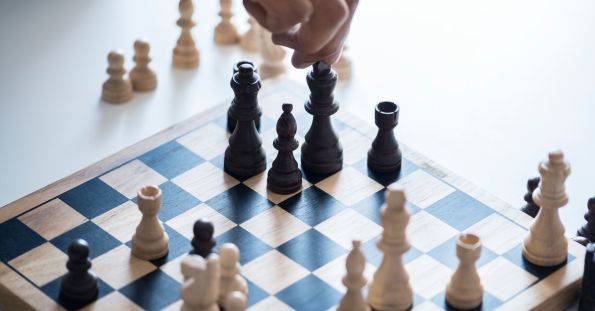
5. Athletics: Athletics events such as running, jumping, and throwing competitions provide opportunities for students to showcase their physical abilities and sportsmanship.
6. Boxing: Boxing helps students build self-defense skills, improve physical fitness, and instil discipline and self-control.
Also Read : What is The Importance of Discipline in Students’ Life?
7. Meditation: Practicing meditation can help students manage stress, improve focus, and promote emotional well-being.
8. Yoga: Yoga not only improves physical flexibility but also cultivates mental clarity and relaxation techniques.
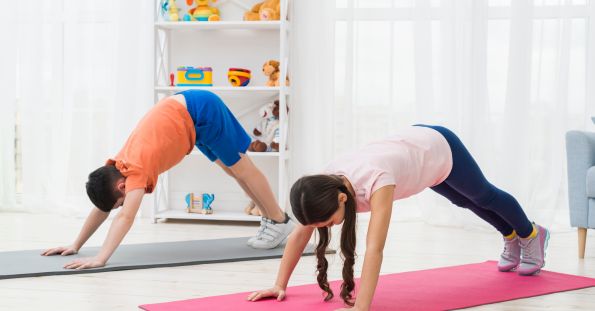
9. Martial Art: Martial arts training instills self-discipline, respect, and self-confidence while providing a means of self-defence.
10. Modelling: Modelling workshops and events can boost students’ confidence and self-expression.
11. Origami: Origami, the art of paper folding, encourages creativity, patience, and attention to detail.
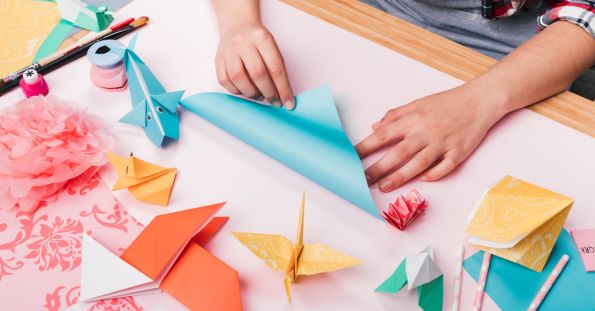
12. Classical & Contemporary Vocal Music: Learning classical or contemporary vocal music enhances students’ musical abilities, breathing control, and expression.
Also Read : How to Overcome Exam Fear and Focus on Studies?
13. Ikebana: Flower Arrangements: Ikebana teaches students the art of floral arrangement, promoting aesthetic appreciation and creativity.
14. Clay Modelling: Clay modelling fosters artistic expression and helps students shape their imagination into tangible forms.
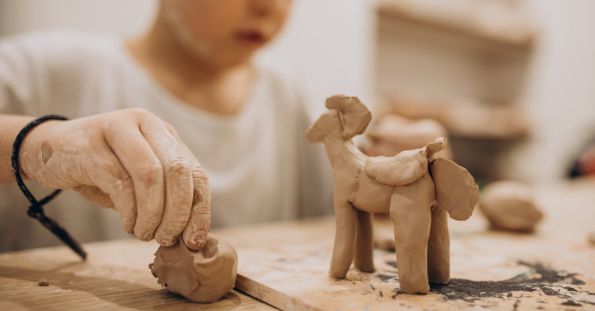
16. Dance: Dance classes allow students to express themselves through movement and creativity.
17. Drama and Theatre: Drama and theatre workshops build confidence, public speaking skills, and teamwork among students.
18. Debate: Debating enhances critical thinking, persuasive communication, and research skills.
19. Commercial Art: Commercial art projects like designing public relations or advertising campaigns develop creativity with a practical approach.
Also Read: How To Avoid Sleep While Studying?
20. Student Newspaper Writing, Editing, and Publishing: Involvement in student newspapers hones writing, editing, and journalistic skills.
15. Art and Craft: Engaging in various art and craft activities allows students to explore different mediums and unleash their creativity.
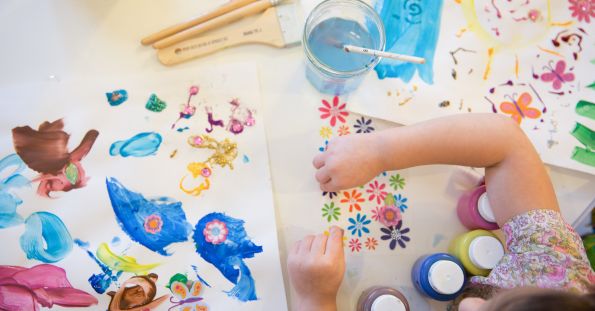
21. Videography: Learning videography enables students to express their ideas through visual storytelling.
22. Photography: Photography fosters artistic vision, observation skills, and capturing memorable moments.
23. Tailoring: Tailoring workshops can promote creativity and practical sewing skills.
Also Read : Importance of Community Workers and Their Roles
28. Weaving, Knitting & Embroidery: Learning weaving, knitting & embroidery techniques help students understand traditional crafts and textile art, promotes creativity, and fosters an appreciation for textile artistry.

25. Candle Making: Candle making is a fun and creative activity that can turn into a potential entrepreneurial venture.
26. Soap Making: Soap making teaches students the chemistry of soap production and the potential for eco-friendly alternatives.
27. Celebration and Cultural Festivals: Organizing cultural festivals fosters appreciation for diversity and traditions.
29. Gardening: Gardening activities connect students with nature and instill a sense of responsibility towards the environment.

30. Celebration of Days: Celebrating various national & international awareness days and events fosters a sense of social responsibility and empathy.
Also Read : Nurturing Success: Hard Work, Dedication, Determination
31. Camping and Related Activities: Camping trips promote outdoor skills, teamwork, and self-reliance.
32. Participation and Management of Student Clubs, and Societies: Involvement in clubs and societies enhances leadership and organizational skills.
33. Instrumental Music: Learning to play musical instruments cultivates musical talent and appreciation.
34. Poetry Recital: Poetry recitals showcase students’ literary prowess and public speaking abilities.
35. Toy-making: Toy-making activities encourage creativity and problem-solving skills.

36. Carpentry: Carpentry workshops introduce students to woodworking skills and craftsmanship.
37. Organizing Awareness Programs: Arranging awareness programs raises awareness about social issues and encourages community involvement.
38. Essay Writing Competition: Essay writing competitions promote writing proficiency and encourage students to articulate their thoughts effectively.
39. Elocution Contest: Elocution contests improve public speaking, articulation, and language skills.

40. Environmental Clubs: Raise awareness about environmental issues and organize eco-friendly initiatives like recycling drives or sustainable practices within the school.
41. Sculpture Making: Students express artistic vision through sculpting various forms and materials.
42. Creative Writing: Imagination takes flight as students craft compelling stories and poems with their words.
Co-curricular activities have the potential to teach important life skills to students. They can help students excel in academics and even boost their confidence in school. Parents should encourage their kids to be part of co-curricular activities, and schools, on the other hand, should promote these activities for students.
JBM Global is a prominent school in Noida that promotes co-curricular with academics and focuses on the holistic development of the student. Students of JBM Global perform beyond the classroom and excel in arts, sports, and extracurriculars & showcase their talents on the bigger stage. Enroll your child in our dynamic learning community for enhanced productivity and growth.
Some of the co-curricular activities that students can pick besides academics are debating, creative writing, painting, photography, theatre, dancing, instrumental music, yoga, singing, and more which will certainly help in their holistic development.
Co-curricular activities have several benefits from skill development to boosting confidence. Here are some of its top benefits: